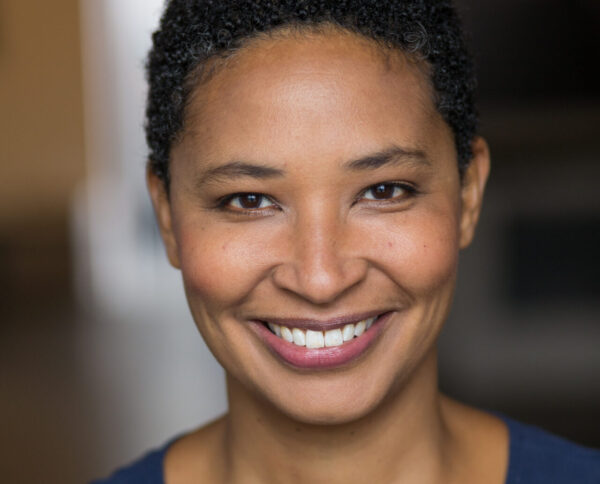Danielle Allen is a seasoned leader, public policy and public affairs expert, national voice on pandemic response, and distinguished academic and author. Danielle’s work to make the world better for young people has taken her from teaching college and leading a $60 million university division to driving change as board chair for a $6 billion foundation, writing for the Washington Post, and most recently, to running for governor of Massachusetts.
As James Bryant Conant University Professor at Harvard and the Director of the Allen Lab for Renovating Democracy at the Harvard Kennedy School’s Ash Center, Allen guides leadership teams on purpose-driven work, organizational culture, operational strategies, and diversity, equity, and inclusion.
Allen is the co-Chair of the Commission on the Practice of Democratic Citizenship, formed to explore how best to respond to the weaknesses and vulnerabilities in political and civic life. Its final and bipartisan report, Our Common Purpose: Reinventing American Democracy for the 21st Century, was released in June 2020 and includes six strategies and 31 ambitious recommendations to help the nation emerge as a more resilient democracy by 2026, the nation’s 250th anniversary. As Director of Harvard’s Safra Center, Allen led a collaboration of scientists and researchers at leading institutions including Harvard Global Health Institute, Rockefeller Foundation, CovidActNow, Covid-Local, CIDRAP and many others to develop the Key Metrics For COVID Suppression framework, that provides clear, accessible guidance to policy makers and the public on how to target and suppress COVID-19 more effectively across the nation. Her latest book, Democracy in the Time of Coronavirus, “a trenchant call for reimagining how America functions in a time of crisis” (Publishers Weekly), builds off this scholarship to offer a plan for creating a more resilient democratic polity—one that can better respond to both the present pandemic and future crises.
Her forthcoming Justice by Means of Democracy focuses on how we can bridge our current impasses–from inequality and disempowerment to polarization and disinformation– highlighting 21st century practices for a stronger democracy. She is currently tackling urgent questions at the intersection of democracy and technology.
Past work has focused on the broad history and personal significance of justice and democracy. In addition to Democracy in the Time of Coronavirus and Justice by Means of Democracy, Allen is the author of six books including Our Declaration: A Reading of the Declaration of Independence in Defense of Equality, Education and Equality and Cuz: An American Tragedy.
Inspired by her work in justice and citizenship, and troubled by the fact that so few Americans actually know what the Declaration of Independence says, Allen set out to explore the arguments of the Declaration, reading it with both adult night students and University of Chicago undergraduates. Keenly aware that the Declaration is riddled with contradictions―liberating some while subjugating slaves and Native Americans―Allen and her students nonetheless came to see that the Declaration makes a coherent and riveting argument about equality. They found not a historical text that required memorization, but an animating force that could and did transform the course of their everyday lives. In an “uncommonly elegant, incisive, and often poetic primer on America’s cardinal text,” Our Declaration now brings these insights to the general reader, illuminating the “three great themes of the Declaration: equality, liberty, and the abiding power of language” (David M. Kennedy). With its cogent analysis and passionate advocacy, Our Declaration thrillingly affirms the continuing relevance of America’s founding text, ultimately revealing what democracy actually means and what it asks of us. Our Declaration was awarded the Heartland Prize, the Zócalo Book Prize, and the Society of American Historians’ Francis Parkman Prize.
In Cuz, a “compassionate retelling of an abjectly tragic story” (New York Times), Allen recounts her heroic efforts to rescue Michael Alexander Allen, her beloved baby cousin, who was arrested at fifteen for an attempted carjacking. Tried as an adult and sentenced to thirteen years, Michael served eleven. Three years later, he was dead. Why did this gifted young man, who dreamed of being a firefighter and a writer, end up murdered? Why did he languish in prison? And why at fifteen was he in an alley in South Central Los Angeles, holding a gun while trying to steal someone’s car? Hailed as a “literary miracle” (Washington Post), this fierce family memoir makes mass incarceration nothing less than a new American tragedy. Henry Louis Gates called Cuz “an elegiac memoir and social jeremiad.”
She is the recipient of the 2020 John W. Kluge Prize for Achievement in the Study of Humanity, an award administered by the Library of Congress that recognizes work in disciplines not covered by the Nobel Prizes as well as a MacArthur Fellowship and honorary degrees from multiple colleges and universities.
For more information on Danielle Allen please visit her on Twitter, at scholar.harvard.edu/danielleallen/home, and explore her page on The Washington Post.
